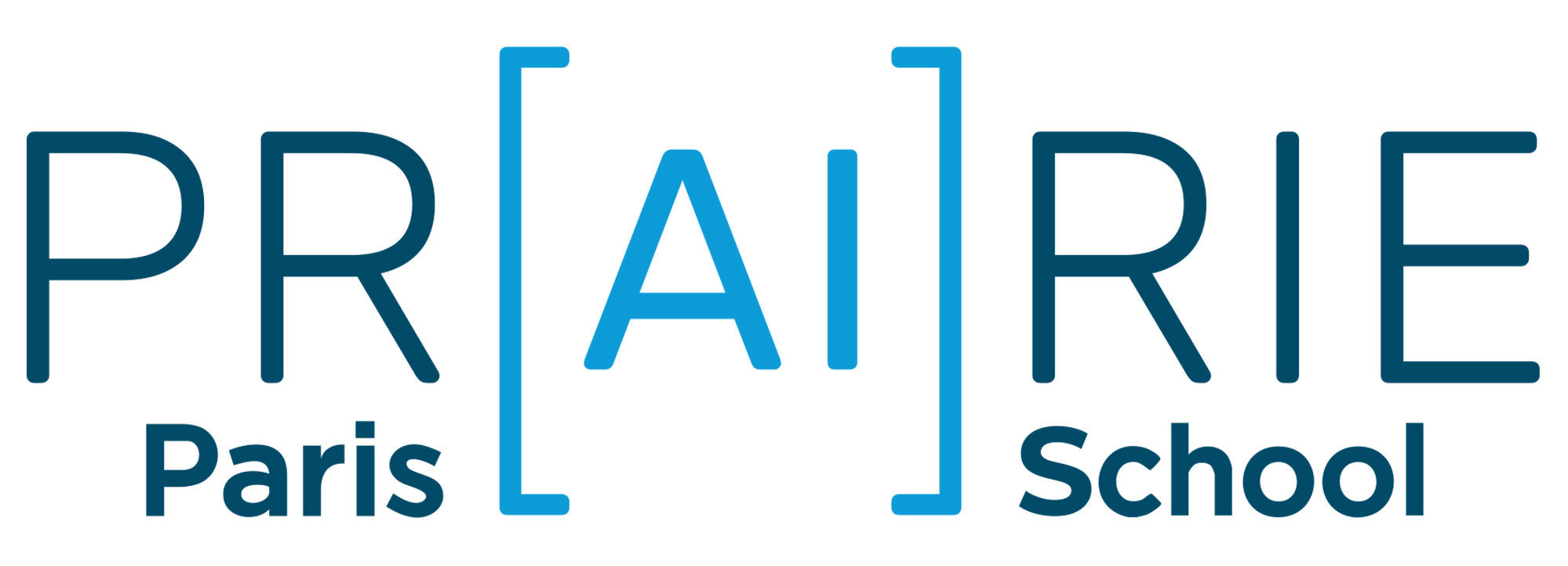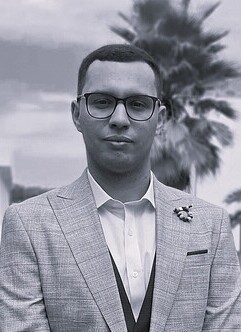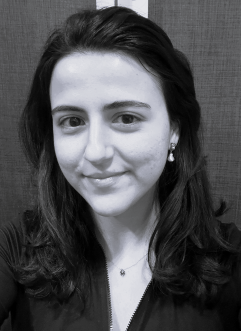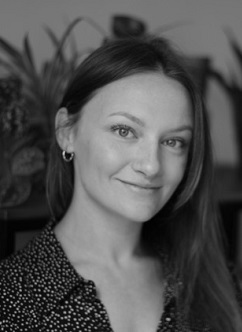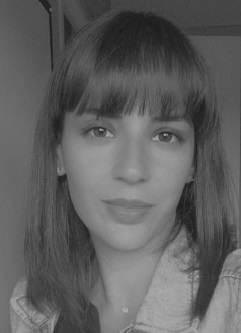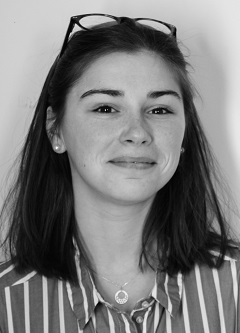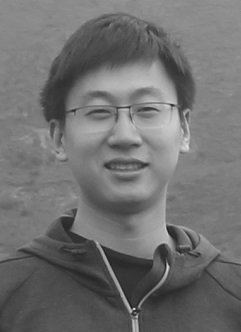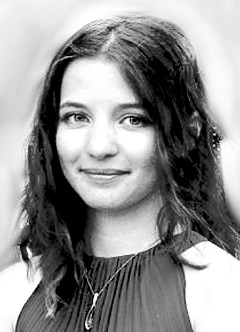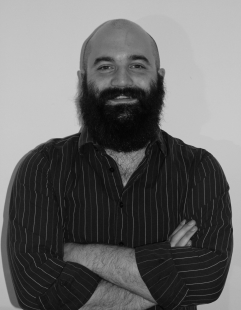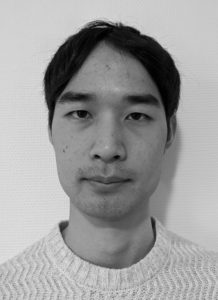ETLING Sophie
Sophie.etling [at] inria.fr
Short bio
- Bachelor’s degree in Economics and Management from La Sorbonne University
- Master’s degree in Education from Paris-Saclay University
Research project
After several years of experience as a primary school teacher, I joined a research team to work a multimodal hyperscanning project studying collaboration between children. I bring my educational expertise and project management skills to coordinate this research, and, in parallel, I collaborate with the team working on the development of Articulab’s next conversational agent, Son-of-Sara.
SILEM Oussama
oussama.silem [at] inria.fr
Short bio
- Computer Science Engineer, Higher National School of Computer Science -ESI ex INI- (Algeria)
Research project
The role of rapport in human conversational agent interaction: Modeling conversation to improve task performance in human agent interaction.
Short abstract
I work on adapting large language models for spontaneous conversation and enhancing their ability to establish a social connection with the interlocutor beyond merely transmitting information. I investigate ways to enable these models to better replicate human interaction dynamics, including social factors such as rapport.
DEMIRKAN Sinem
sinem.demirkan [at] inria.fr
Short bio
- Master’s in Life Sciences-Neuroscience track from ENS-PSL
- Bachelor’s in Life Sciences from Sorbonne University
Research project
Neural correlates of social interaction
Short abstract
My research focuses on understanding how kids aged 5 to 12 collaborate. I use a method called fNIRS hyperscanning to study their brain activity together as they interact. My aim extends to use what we learn from neuroscience to help create an empathetic AI for children.
JENKINS Jade
jade.jenkins [at] inria.fr
Short bio
- MSc Gerontology Research with distinction from the University of Southampton, UK
- BS magna cum laude from the University of New Orleans, USA
Research project
Hyperscanning and social cognition in middle childhood.
Short abstract
BONNAIRE Julie
julie.bonnaire [at] inria.fr
Short bio
Master degree in Systems Biology at Sorbonne University
Research project
Study of the neural correlates of social skills.
Short abstract
My work aims to better understand the development of social skills. In this vein, I use hyperscanning techniques, which allow the recording of the brain activity from at least two individuals engaged in social exchange, providing a novel type of neural correlate: the inter-brain synchrony. This study contributes to a deeper understanding of how the social brain develops and how rapport management occurs by looking at moments of high or low rapport with neural synchrony.
BRIANCEAU Camille
camille.brianceau [at] icm-institute.org
Short bio
- Master degree (Diplôme d’ingénieur) at Institut d’Informatique d’Auvergne (ISIMA)
- Master degree in imaging and technology for medicine (Université Clermont Auvergne)
Research project
ClinicaDL
Short abstract
ClinicaDL is an open-source software for deep learning processing on neuro-imaging data. My works consists in extending this software with new features and standard deep learning tools of the community, and providing PhD students and researchers with support.
Short bio
- Master Degree (University of Chinese Academy of Sciences)
- Bachelor Degree (Northwestern Polytechnical University)
Research topic
Learning policies for object manipulation from real videos
Short abstract
Learning accurate policies for diverse tasks and environments is a long-standing challenge in computer vision and robotics. The goal of this project is to learn policies for object manipulation by reconstructing and modeling hands and objects in real videos with people performing related actions.
VAILLANT Ghislain
Research Software Engineer
Université Paris Dauphine-PSL
ghislain.vaillant [at] icm-institute.org
Short bio
PhD, King’s College London
Research project
Clinica
Short abstract
Clinica is the software platform for clinical neuroimaging studies involving processing of multimodal data (imaging and phenotypic) for patients with cognitive diseases. My work consists in extending this platform to provide its functionalities as a service in the Cloud in order to serve a wider scientific audience.
DI FOLCO Cécile
cecile.difolco [at] icm-institute.org
Short bio
- Engineer diploma (AGROPARISTECH)
- Master of Data science («INFORMATIQUE: SYSTEME INTELLIGENTS»-UNIVERSITE PARIS-DAUPHINE)
- Master of Cognitive Sciences (ENS, UNIVERSITE DE PARIS, EHESS)
Research project
Modelling neurodegenerative diseases.
Short abstract
I study the modeling of neurodegenerative diseases’ progression using imaging and clinical data. In particular, I investigate the influence of various cofactors, including genetics, on Parkison’s Disease progression.
YGER Florian
florian.yger [at] dauphine.fr
Short bio
Florian Yger is an associate professor of computer science at Université Paris Dauphine-PSL and a researcher in the MILES team at LAMSADE since 2015. From 2014 to 2015, he was a JSPS postdoctoral fellow in the laboratory of Pr. Sugiyama in Tokyo University. He received his PhD in Computer science from LITIS, Université de Rouen under the supervision of Alain Rakotomamonjy in 2013. He is a visiting researcher at RIKEN AIP, Japan since 2017.
Topics of interest
Trustworthy machine learning, Causal inference, interpretable AI
Project in Prairie
Florian Yger will address the questions of trust, explainability and interpretability in machine learning models (including deep learning) with a focus on the robustness to adversarial examples and counterfactual reasoning on data. This project has natural and practical applications in the medical field.
Quote
In the last decade, deep learning has made possible breakthrouhgts in several domains (e.g. computer vision, machine translation, games, …). Yet those hardly interpretable algorithms are fed with huge amounts of -sometimes sensitive- data and can suffer from malicious attacks: attacks on the privacy of the data and attacks on the robustness where adversarial examples are generated to fool the algorithm. This is a critical issue (especially in medical applications) and we feel that an effort toward a deeper theoretical analysis is needed.
Team
YAMANE Ikko
Postdoctoral researcher
